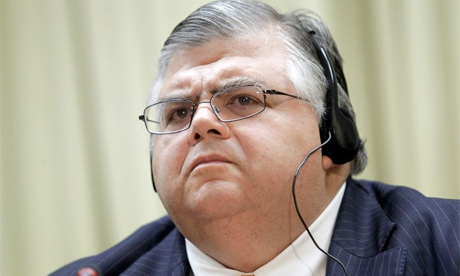
The impasse slowing the approval of free trade pacts between the U.S. and three countries including Panama and Colombia appears to be over.
According to several reports a compromise was reached that would permit the stalled agreements
to move forward in the U.S. Congress. After intense negotiations between the Obama administration and Congress, the Senate Finance Committee agreed that they would start work on the pacts as early as this Thursday. The pacts would fall under the so-called “fast track status” where Congress places them under an up-or-down vote without the chance to amend them. Furthermore, consideration of the deals would tie them to a temporary extension of the Trade Adjustment Assistance (TAA), a federal program that helps workers displaced when their jobs are sent overseas.
The move was praised
by the White House via press secretary Jay Carney who said, “Now it is time to move forward with TAA and with the Korea, Colombia, and Panama trade agreements, which will support tens of thousands of jobs.”
The president of the U.S. Chamber of Commerce, one of the country’s most important pro-business advocacy groups, also backed the compromise. "For members of Congress who care about American jobs, this is
a moment of truth," said Chamber President Thomas Donohue.
The free trade deals, which were negotiated under President George W. Bush and modified under the Obama administration, are expected to receive strong opposition from members of both sides of the aisle. Several congressional Republican leaders are vehemently opposed to the TAA and believe that it should be discussed separately from the free trade deals. Sen. Orrin Hatch, the top Republican on the Finance Committee, claimed that the compromise "risks support for this critical job-creating trade pact in the name
of a welfare program of questionable benefit at a time when our nation is broke."
Meanwhile, the top Democrat on the House Ways and Means Committee, Sander Levin, said yesterday that he
would “actively oppose” the deal with Colombia since it neglects to mention an “action plan” on workers’ rights. Yet Senate Finance Committee Chairman Max Baucus has urged his fellow Democrats to back the proposal that “will boost our economy by billions of dollars and create new jobs and opportunities here at home.”
The "mock markup" also includes renewing the Andean Trade Promotion and Drug Eradication Act (ATPDEA), a trade preference system that expired this year amid the debate over free trade. According to the website for Colombian daily El Tiempo, this
is welcome news to the country’s exporters:
This news is key since Colombian exporters have been obligated to pay tariffs since the ATPDEA expired in February. The extension of the ATPDEA program would be long enough to connect to the start of the free trade deal, which could start as late as one year after Congressional approval.
Image- Fox/ The Washington Post via Seattle Times (“Colombia's export revolution began with flowers. Many Medellín residents, including Luz Dari Garcia, 20, work in the flower business. Colombian flowers make up roughly 90 percent of all those sold in the United States.”)
Online Sources- NPR, Bloomberg, El Tiempo, USA TODAY, Reuters, Portfolio.com
 * Argentina: This year’s edition of the Copa America opened with hosts Argentina being held to a 1-1 tie by Bolivia.
* Argentina: This year’s edition of the Copa America opened with hosts Argentina being held to a 1-1 tie by Bolivia.







